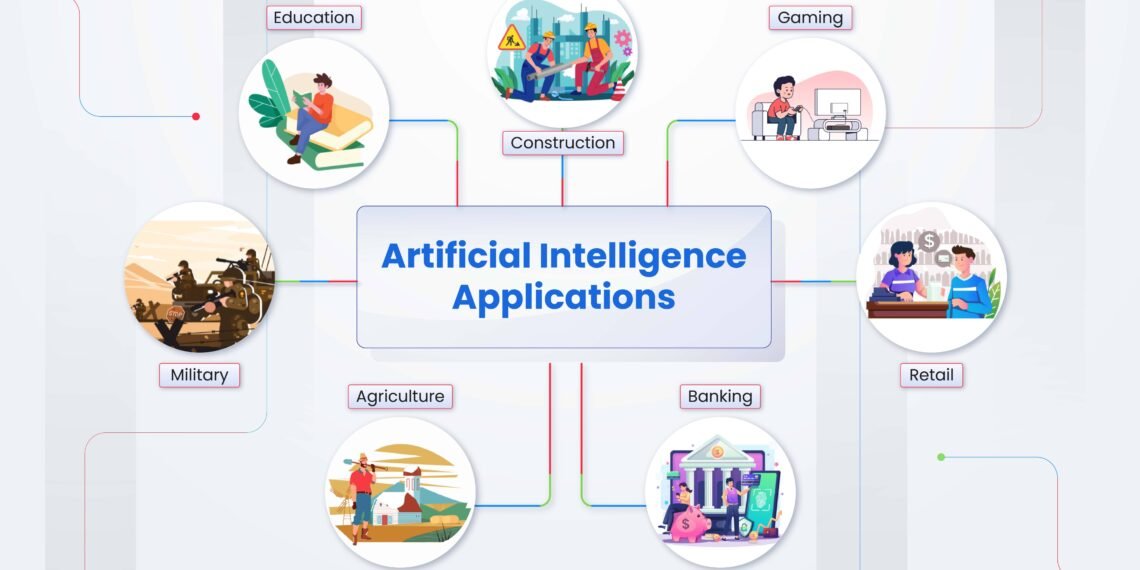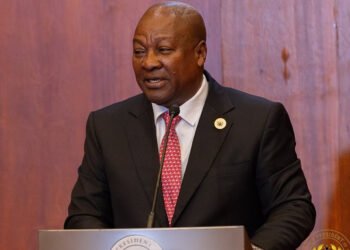The Ministry of Education has announced the rollout of subject-specific Artificial Intelligence (AI) applications for Senior High Schools across the country, a move that is expected to improve the teaching and learning of the new SHS curriculum.
According to the Ministry, the initiative will support over 68,000 teachers in delivering lessons to more than 1.4 million learners, while strengthening education delivery without compromising Ghana’s ethical and cultural values. The announcement was made in a statement issued in Accra on October 1, 2025.
“The design of Apps, for delivering the new curriculum was co-created by the Ghana Education Service (GES), the National Council for Curriculum and Assessment (NaCCA), the National Teaching Council (NTC), the National School Inspectorate Authority (NaSIA), the Centre for National Distance Learning and Open Schooling (CENDLOS), and Playlab AI with support from Transforming Teaching, Education and Learning (T-TEL) and the Mastercard Foundation”
Ministry of Education
The Ministry explained that the apps are built on Ghana’s own curriculum materials, including teacher manuals, learner resources, and frameworks that promote national values, gender equality, and social inclusion.

They are designed to help teachers plan lessons and conduct assessments more efficiently while providing learners with interactive and tailored resources.
The Education Ministry further noted that the rollout will be integrated into “weekly Professional Learning Community sessions across all 712 SHSs,” creating a platform for teachers to collaborate, test the apps, and provide feedback. It stressed that the tools are meant to complement teachers’ expertise rather than replace it.
“The introduction of the AI-based subject apps will play a critical role in strengthening curriculum delivery, bridging gaps in teaching, and equipping both teachers and students with innovative tools to achieve quality learning outcomes”
Ministry of Education
Testing Framework and Nationwide Rollout
It was confirmed that a “four-phase testing framework,” had been established to ensure the effectiveness and suitability of the applications.

This includes technical accuracy checks to align with curriculum content, reviews for educational quality and pedagogical soundness, user experience testing in pilot schools, and regional trials to assess readiness for national rollout.
The phased approach, according to the Ministry, reflects the government’s commitment to ensuring that the applications are practical, functional, and adapted to the local education context before being scaled up.
The full rollout of the initiative is scheduled to begin nationwide in October 2025. To support implementation, over 7,800 school-based facilitators will undergo training to guide their peers in using the applications effectively in classrooms.
The Ministry emphasized that the program is “locally led, ethically grounded, and aligned with the government’s vision,” of modernizing education while preserving Ghana’s values.
“We are building a system that ensures technology supports teachers to deliver better learning outcomes for all students,” it underscored.

The introduction of the subject-specific AI apps, spearheaded under the leadership of Education Minister Hon. Haruna Iddrisu, marks a significant milestone in Ghana’s education reform agenda.
It aligns with President John Dramani Mahama’s broader vision of equipping the next generation with innovative tools to succeed in a technology-driven world.
READ ALSO: Ghana’s Cocoa Arrivals Quadruple in August, Shaking Global Chocolate Market






















